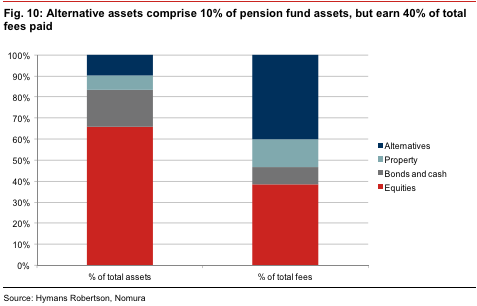Hedge Funds Higher Returns Or Just High Fees
Post on: 16 Май, 2015 No Comment

Unlike mutual funds, hedge fund managers actively manage investment portfolios with a goal of absolute returns regardless of overall market or index movements. They also conduct their trading strategies with more freedom than a mutual fund. typically avoiding registration with the Securities & Exchange Commission (SEC). (For background reading on this topic, see Hedge Funds Hunt For Upside, Regardless Of The Market .)
There are two basic reasons for investing in a hedge fund: to seek higher net returns (net of management and performance fees) and/or to seek diversification. But how good are hedge funds at providing either? Let’s take a look.
A timely strategy is also critical. The often-cited statistics from CSFB/Tremont Index in regard to hedge fund performance during the 1990s are revealing. From January 1994 to September 2000 — a raging bull market by any definition — the passive S&P 500 Index outperformed every major hedge fund strategy by a whopping 6% in annualized return. But particular strategies performed very differently. For example, dedicated short strategies suffered badly, but market neutral strategies outperformed the S&P 500 Index in risk-adjusted terms (i.e. underperformed in annualized return but incurred less than one-fourth the risk). If your market outlook is bullish, you will need a specific reason to expect a hedge fund to beat the index. Conversely, if your outlook is bearish. hedge funds should be an attractive asset class compared to buy-and-hold or long -only mutual funds. Looking at the period up to the middle of 2009, we can see that the Credit Suisse/Tremont Hedge Fund Index made up ground on the S&P 500 with net average annual performance of 8.93% versus 6.46% for the S&P 500 (since January 1994). The divergence of performance between these two periods shows that timing is critical when investing in hedge funds.
Diversification Benefits
Many institutions invest in hedge funds for the diversification benefits. If you have a portfolio of investments, adding uncorrelated (and positive-returning) assets will reduce total portfolio risk. Hedge funds — because they employ derivatives. short sales or non-equity investments — tend to be uncorrelated with broad stock market indexes. But again, correlation varies by strategy. Historical correlation data (e.g. over the 1990s) remains somewhat consistent, and here is a reasonable hierarchy:














